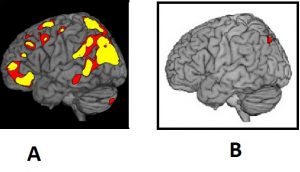NDM: What would you say are the odds of someone being “enlightened” also becoming a Jivanmukta?
Ramesam Vemuri: Advaita holds that everyone is already a Jivanmukta. Some scriptures unequivocally declare that the mind is most important. If it knows clearly that it is unbound, it is free. If it thinks it is bound, it is in bondage!
And incidentally, the Advaita teaching does not say one “becomes” a Jivanmukta. The teaching is that “You are That.” It is not to ‘become’ but just to ‘be.’
Enlightenment or the first glimpses of ‘realization’ may entitle one to be called as a Jivanmukta. But to be unceasingly in/as brahman, one has to overcome several of the distractions that the mind keeps posing.
NDM: The one question that really interests me is what someone can do about their vAsanA-s if they are enlightened, but still have problems with them? Continue reading

